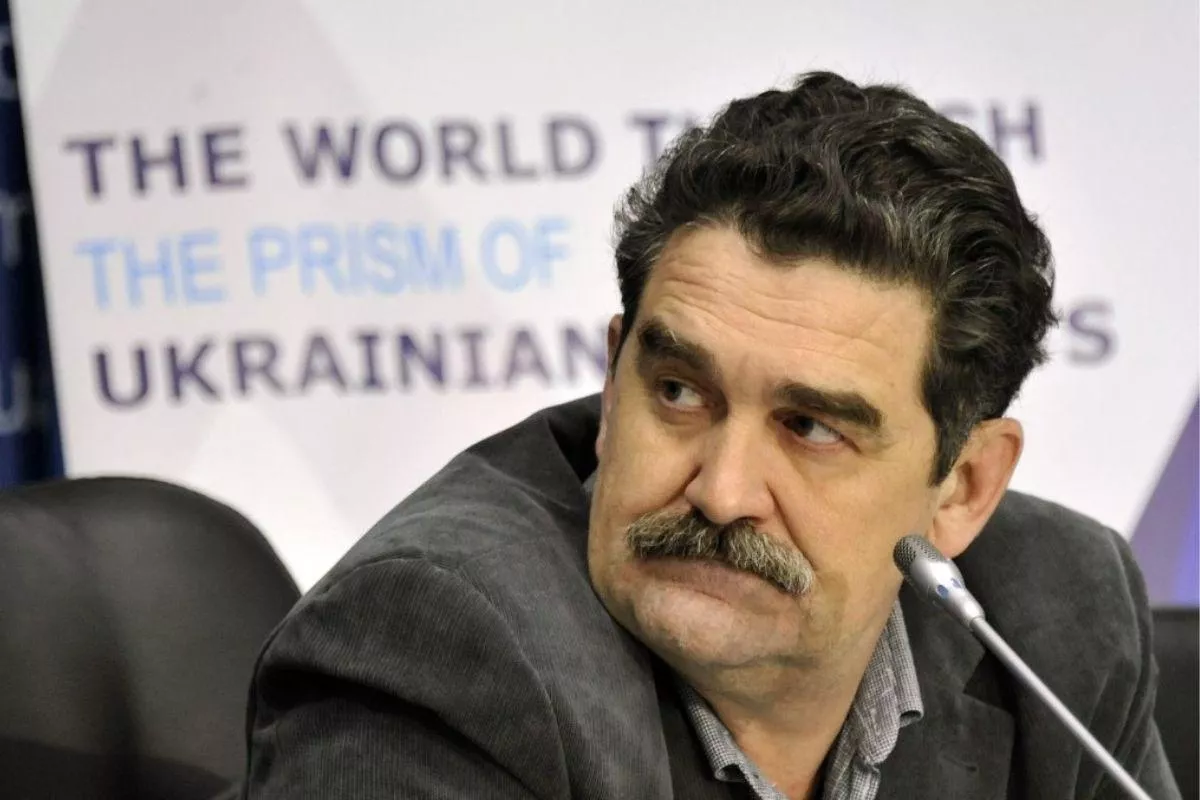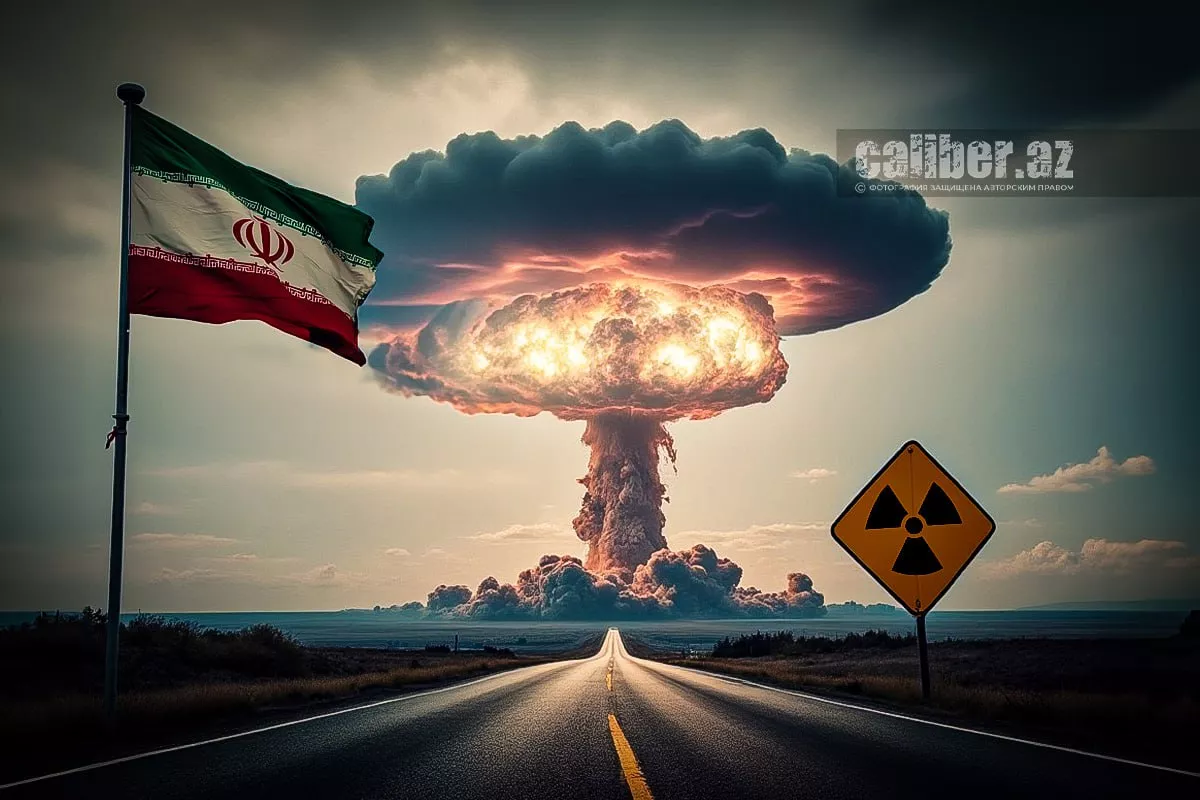US vs. Iran: War or negotiations? Expert opinions on Caliber.Az
The United States is increasing its military presence near Iran amid negotiations over the nuclear program, reports Bild. U.S. military forces have deployed six strategic B-2 Spirit bombers to the Diego Garcia base in the Indian Ocean, approximately 3,800 kilometers from Iran. Satellite images have captured the aircraft on the runway, and other military equipment has been detected as well.
This build-up comes against the backdrop of heightened tensions with Iran and the resumption of nuclear program talks. President Donald Trump has reiterated that Iran "can't have a nuclear weapon," threatening severe measures if negotiations fail.
Some media outlets believe that escalation could occur very soon and that Trump might be preparing airstrikes on nuclear sites. According to the Telegraph, bombs could fall as early as this weekend.
It is also reported that the Pentagon has expanded its military plans regarding Iran and is not ruling out scenarios involving nuclear strikes. Tehran, for its part, has threatened attacks on the Diego Garcia base.
Additionally, Iran has, for the first time, transferred long-range ground-to-ground missiles to its allies in Iraq, further increasing its military presence in the region, according to The Times.
Iran is secretly supplying surface-to-surface missiles, some of which could reach Europe. According to sources, this is the first time Tehran has transferred surface-to-surface missiles to its allies in Iraq, the publication notes.
“The Times has learned that Tehran has been bulking up its presence in the region by supplying a new batch of weapons to powerful Shia militias in Iraq, dashing hopes that Iran would withdraw support as it prepares to enter negotiations with the United States over its missile and nuclear programme”, the newspaper writes.
According to the publication, the weapons transfer took place last week and was organized by the Islamic Revolutionary Guard Corps (IRGC). In addition to long-range missiles, shorter-range missiles were also delivered to Iraqi militias.
Against the backdrop of such statements, many observers are expressing concerns about the sharp rise in tensions between Washington and Tehran. There are direct opinions that the possibility of war between the U.S. and Iran has become more likely. How justified are these expectations? Could a large-scale ground war occur in the region? Or is there still hope for favorable negotiations between the U.S. and Iran?
Well-known regional experts have attempted to answer these questions for Caliber.Az.

Ihor Semivolos, Executive Director of the Middle East Studies Center (Kyiv), believes that the negotiations between the United States and Iran in Oman are influenced by a complex network of regional and global interests, particularly the positions of Israel, Saudi Arabia, and Russia.
"Each of these players shapes the dynamics of the dialogue, affecting the likelihood of compromise, escalation, or the breakdown of negotiations. Specifically, Israel views the Iranian nuclear program as an existential threat and insists on its complete dismantling. Tel Aviv is prepared for preventive strikes, which could derail the talks if Iran does not make significant concessions. In turn, Israel's pressure on the U.S. limits Washington's flexibility.
The richest Arab country, Saudi Arabia, with which Trump has special relations, competes with Iran for regional influence and fears that easing sanctions will strengthen Tehran. From Riyadh's perspective, the main threat lies in Iran's missile capabilities and the activities of Iranian proxy groups, such as the Houthis, and the Saudis insist on limiting these threats.
On the other hand, the Saudi authorities are interested in regional stability, which will certainly be jeopardized if a war breaks out.
Russia, which has strategic relations with Iran, seeks to weaken U.S. influence but does not desire a full-scale war that could harm its position in the region. By offering Tehran diplomatic and possibly military support, Moscow has the ability to manipulate Iran’s interests — both pushing Iran toward a hardline stance and supporting an agreement if it aligns with Russian interests," explained the researcher.
In his view, Oman, the country currently acting as a facilitator and creating a platform for indirect negotiations, is interested in de-escalation to avoid a regional war that would destabilize the Middle East.
"Like other Gulf countries, Oman is balancing the interests of the U.S., Iran, and other players, offering compromise solutions, such as the phased lifting of sanctions in exchange for nuclear limitations.
Considering all the positions, the most likely scenario is a partial compromise with a high risk of breakdown due to external provocations. It is most probable that the parties will reach a limited agreement: Iran will agree to temporary nuclear restrictions, while the U.S. will partially ease sanctions (for example, in the banking sector). However, the agreement will remain fragile due to mutual distrust and pressure from Israel and Saudi Arabia, who will view it as insufficient. Russia will support the agreement as long as it does not weaken Iran too much, but keeps influence over Tehran for future negotiations.
The risk of collapse will remain high, especially if Israel or Iran engage in provocations. A full-scale war is unlikely, but targeted strikes or asymmetric attacks could complicate further dialogue," Semivolos believes.

Israeli publicist Alexander Nepomnyashchy, in turn, reminded that Israel and the U.S. are united in their main objective: the Iranian regime must not acquire nuclear weapons.
"However, while Israeli Prime Minister Netanyahu doubts the productivity of direct negotiations with the Iranian regime, U.S. President Donald Trump is betting on diplomacy. He hopes that direct talks between Washington and Tehran will resolve the issue without military intervention — that is, without a joint Israeli-American strike on Iran’s nuclear infrastructure.
The coming days could be crucial: the first rounds of such negotiations are set to take place in Oman.
In Jerusalem, skepticism remains about the chances of reaching an agreement with the Iranian regime. Israel does not believe that the leadership in Tehran is seriously willing to abandon its nuclear program. Still, as long as the negotiations are ongoing — and especially while the illusion of their success persists — the likelihood of a military strike remains extremely low.
It can be reasonably assumed that both before the negotiations begin and for some time after they start, Israel and the U.S. will refrain from launching an attack," the analyst predicts.
However, he says, Tehran seemingly has no intention of making real concessions.
"On the contrary, the goal of the Iranian leadership is to buy time, hoping for political changes in Washington or Jerusalem. They hope that new administrations will be less resolute — and that the pressure will ease.
The danger here is obvious. Nuclear weapons in the hands of a regime openly seeking regional hegemony and known for its aggression pose a threat not only to Israel but to the entire Middle East and the world as a whole. This is understood in both Washington and Jerusalem. Therefore, it is to be hoped that Trump and Netanyahu will not allow Tehran to turn the negotiations into a protracted farce.

It is important to remember: the nuclear program is only part of a broader issue. The focus is on the very nature of the ruling regime in Iran — fanatic, repressive, and expansionist. It oppresses its own people, destabilizes neighboring countries, and threatens the world. Solving this problem requires not only containment but also a strategic objective: to assist the Iranian people in ridding themselves of the radical clique that usurped the country in 1979.
If the Iranian people overthrow this regime, the region will have a chance for a qualitatively new reality — one that is more stable and secure. Israel hopes that in this case, it may be possible to restore good-neighborly relations with Iran — similar to how they were before the 1979 revolution. The experience of Israel and Azerbaijan is telling — a country with a predominantly Shiite population, with which Israel is developing deep and mutually beneficial ties. This proves that there is no 'inherent hostility' between Israel and the Shiite world," the publicist notes.
According to him, the question remains open: will Israel and the U.S., relying on economic, diplomatic, and other pressure tools, be able to bring about a regime change without direct military intervention?
"Such a scenario would undoubtedly be optimal. However, its success remains uncertain.
Against this backdrop, the possibility of a strike on Iranian nuclear facilities cannot be ruled out. Such a strike would likely provoke retaliatory actions from Iran — attempts to attack Israel or U.S. positions in the region. Although Tehran’s resources in this regard are limited, the risks remain. Nevertheless, it is unlikely to lead to a full-scale and prolonged war. At least, in the coming days, I don’t foresee that happening," Nepomnyashchy believes.








